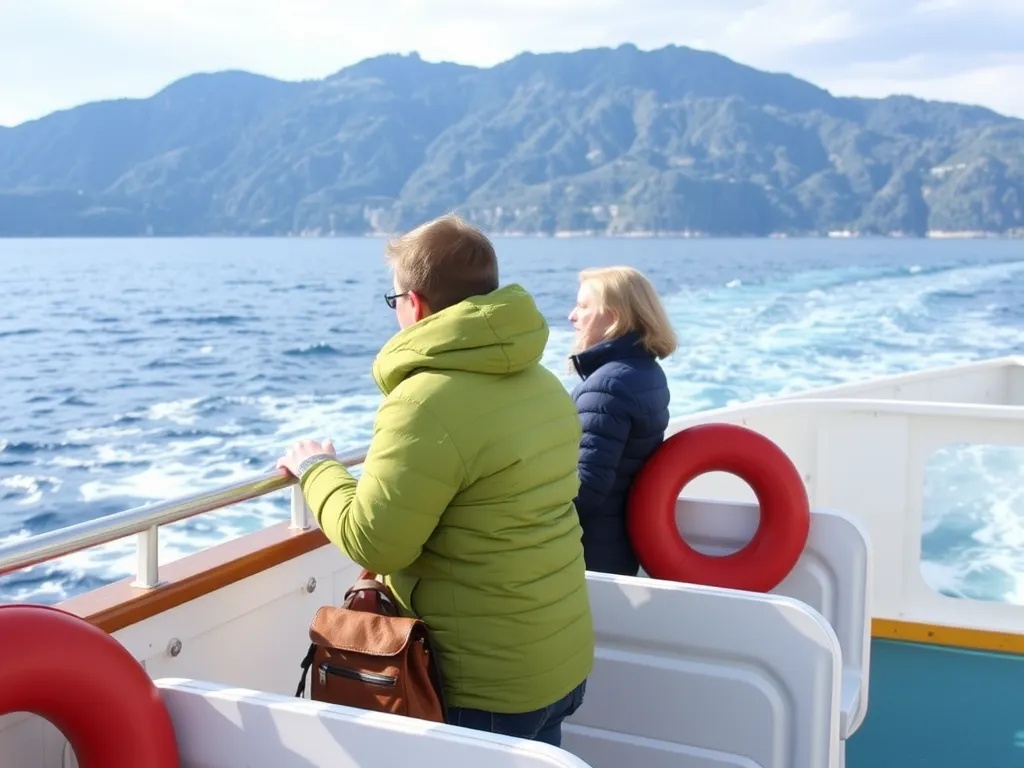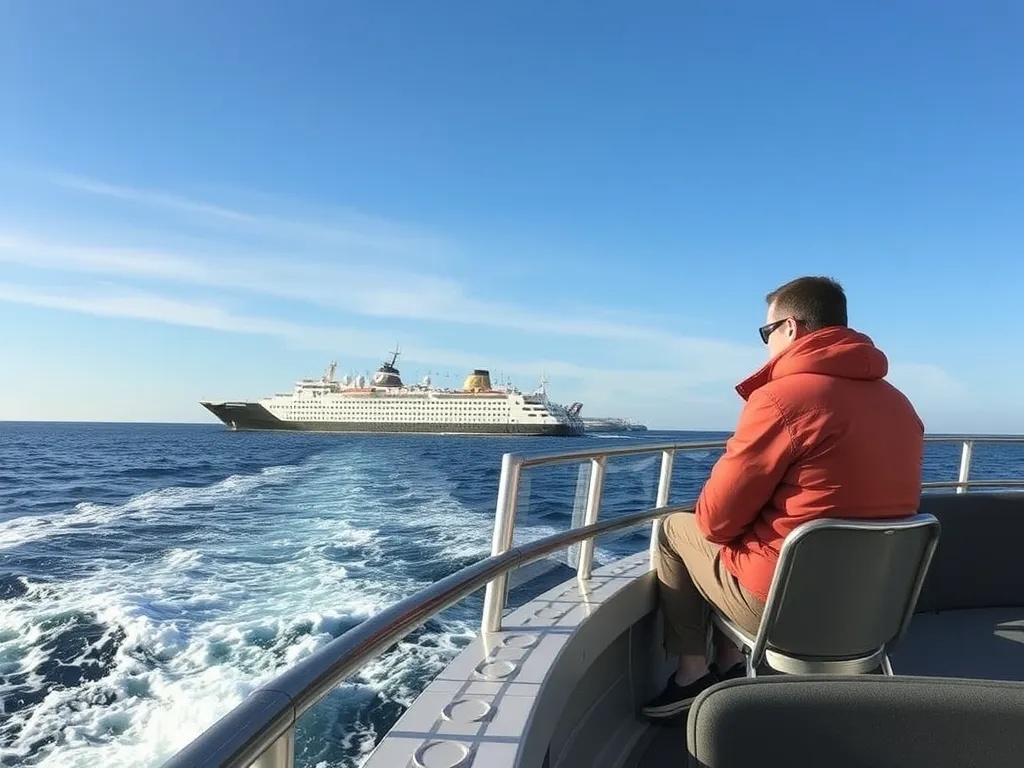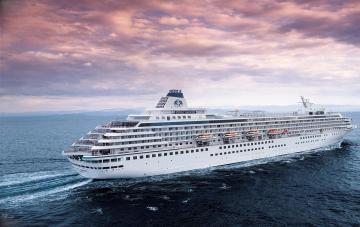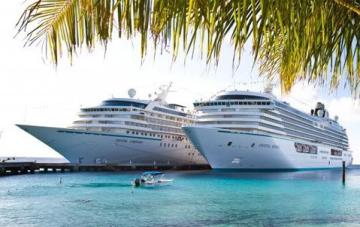
Sea cruises are becoming more and more popular among Russian tourists. The Baltic Sea, Mediterranean cruises or exotic trips to the shores of Asia — the choice of routes is huge. However, many potential travelers are deterred by the fear of seasickness. Don't let motion sickness ruin your long-awaited vacation! Modern medicine and proven methods will help you cope with this problem.
What is seasickness and why does it occur?
Motion sickness is a type of kinetosis, a condition that occurs when there is a discrepancy between the signals that the brain receives from the organs of balance, vision, and proprioceptors. When the ship is rocking on the waves, our vestibular apparatus detects movement, but our eyes, focused on the motionless objects of the cabin, inform the brain about the absence of movement.
Statistics show that about 90% of people are seasick to one degree or another. However, the good news is that most people's bodies adapt to marine conditions within 2-3 days.
The main symptoms of motion sickness
Seasickness manifests itself gradually and may include the following symptoms:
The initial stage is characterized by mild discomfort, yawning and drowsiness. Then nausea, increased salivation, cold sweat and pallor of the skin appear. In severe cases, vomiting, dizziness, apathy and a complete loss of interest in the environment occur.
Preparing for a sea voyage
Cabin planning and booking
Choosing the right cabin can significantly reduce the risk of motion sickness. Cabins in the central part of the ship on the lower decks experience a lower pitching amplitude. Avoid cabins in the bow and stern of the ship, where the pitching is felt the most.
When booking, Russian tourists often choose cabins with a window or balcony, considering them more prestigious. However, for people prone to motion sickness, it is better to choose an inner cabin without a window — the absence of visual contact with the horizon will help avoid a conflict of sensory signals.
Medical training
Visit your GP a few weeks before your trip. This is especially important for people with chronic diseases. The doctor will help you choose the right medications for motion sickness and give you individual recommendations.
Various remedies for motion sickness are available in Russian pharmacies: dramina, avia-sea, kokkulin and others. It is important to test the selected drug in advance to ensure that there are no side effects.

Effective methods of combating motion sickness
Medicinal products
Modern pharmacology offers several groups of anti-motion sickness drugs. Antihistamines such as diphenhydramine and dramine are effective, but can cause drowsiness. Scopolamine in the form of patches provides long-term protection, but requires a doctor's prescription.
Russian doctors often recommend starting medications 30-60 minutes before boarding the ship. Do not wait for symptoms to appear — preventive treatment is much more effective.
Popular articles
Non-medicinal methods
Acupressure bracelets that act on the P6 point on the wrist have shown their effectiveness in clinical trials. These devices are safe and have no side effects, making them ideal for children and pregnant women.
Breathing exercises and relaxation techniques help to cope with the initial symptoms of motion sickness. Deep diaphragmatic breathing stabilizes the nervous system and reduces anxiety.
Practical tips for living on a ship
Proper nutrition
Diet plays a key role in preventing motion sickness. During the first days of the cruise, avoid fatty, spicy, and overly plentiful foods. Russian cuisine, rich in oil and spices, can worsen the symptoms of motion sickness.
Give preference to light dishes: croutons, crackers, bananas and ginger. Ginger is especially effective — it can be consumed in the form of tea, sweets or capsules. Many Russian tourists take ginger biscuits or gingerbread candies with them.
Behavioral strategies
Spend more time on the open deck, looking at the horizon. Fixing your gaze on the distant horizon helps to stabilize the vestibular apparatus. Avoid reading books and using mobile devices during the first days of sailing.
Keep yourself busy with active activities: dancing, games, excursions. Distracting attention from unpleasant sensations often turns out to be a very effective method of combating motion sickness.

Sleep and rest
Proper sleep is critically important for adapting to marine conditions. Fatigue and lack of sleep significantly increase the susceptibility to motion sickness. Keep the cabin at a comfortable temperature and ensure good ventilation.
What to do if seasickness has already started
If symptoms have already appeared, do not panic. Most cases of motion sickness resolve on their own within a few hours. Lie down in a comfortable position, close your eyes and focus on breathing. A cool compress on the forehead and back of the head can relieve the condition.
Avoid sudden head movements and try to stay in the central part of the ship. In case of severe vomiting, it is important to prevent dehydration — drink small sips of water or weak tea.
Conclusion
Seasickness should not become an obstacle to sea travel. With proper training and knowledge of effective prevention and treatment methods, most Russian tourists can enjoy cruises without discomfort.
Remember: adaptation to sea conditions is a natural process, and every day of swimming your well—being will improve. Don't let the fear of motion sickness deprive you of an unforgettable sea trip experience!






